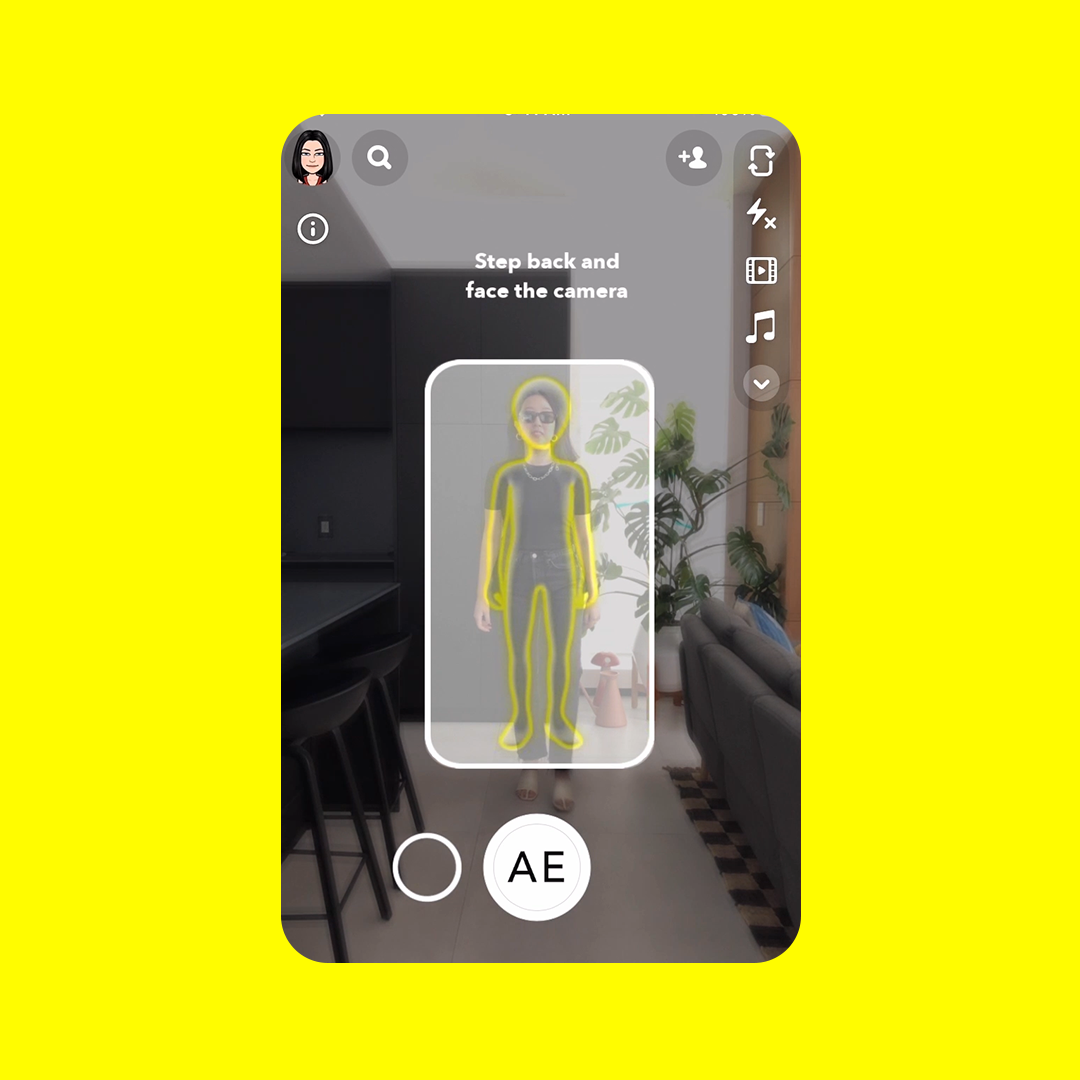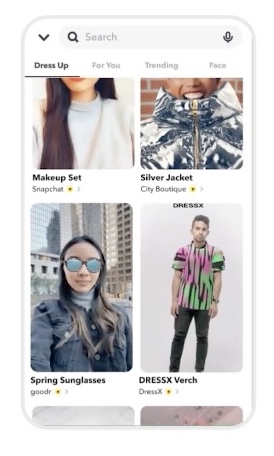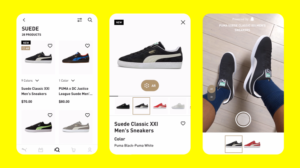At the Snaps Partner Summit on Thursday, the Snapchat maker announced a number of new initiatives that focused on using its AR technology to help with online shopping. Most notably, the company introduces a new in-app destination within Snapchat called “Dress Up” that will offer AR mode and virtual trial experiences, and it launches tools that will allow retailers to integrate with Snapchat’s AR shopping technology in for their own sites and apps, among other updates designed to facilitate the process of creating AR assets.
The company has made progress with AR-powered e-commerce over the past year, after giving its computer vision-based “Scan” feature a more prominent position in the camera section of the app and upgrading it with commerce features. Earlier in 2022, Snap also rolled out support for real-time pricing and product details to improve its AR shopping lists.
These improvements have resulted in increased consumer engagement with AR commerce, Snap says. Since January 2021, more than 250 million Snapchat users have engaged with AR shopping lenses more than 5 billion times, the company notes.
Today, Snap announced that it will put AR technology more directly into retailers’ own hands by allowing them to use Snap’s AR trial technology on their own mobile apps and websites with the Camera Kit for AR Shopping.
This AR SDK (Software Development Kit) will bring catalog-driven purchasing lenses to the retailer’s own product pages so their customers can virtually try on their clothing, accessories, shoes and more. At launch, the feature works on iOS and Android apps, but Snap says it will also work “soon” on websites.
Its first global partner to use the technology is Puma, which will allow customers to virtually try on their sneakers using Camera Kit integration. Shoppers would simply point their phone at their feet to see the sneakers they are considering appear in an AR view.
Retailers will also have access to a new AR Image Processing technology in Snaps 3D asset manager, which Snap says will make it easier and faster to build augmented reality shopping experiences. Through a web interface, brands will be able to select their product SKUs and then transform them into Shopping lenses so they can create new lenses in seconds and at no extra cost, Snap claims.
To do so, partners will upload their existing product photography to the SKUs they sell, which Snaps’ technician will then process using a deep learning module that turns them into AR Image assets. This process uses AI to segment the clothing from the brand’s model photography, essentially turning standard photos into AR assets.
These assets can then be used to create new sample lenses that can be used by shoppers at home who take a full-body selfie photo.

Virtual testing using whole body images. Image credit: Snap
The company is also adding new AR Shopping templates to its Lens Web Builder to convert these assets to Lense faster without the need to understand AR development. Selected partners in clothing, eyewear and footwear can try this in beta today, and Snap will later expand the feature to include furniture and handbags.
In conjunction with this, Snap AR shopping gives a greater place in its own app to the consumers.
Snapchat will introduce a new destination in the app called “Dress Up”, where users can browse and discover new trial experiences from creators, retailers and fashion brands in one place. “Dress Up” will first be available in Lens Explorer, but will soon be added a push away from the camera in the AR Bar.

Snap’s Dress Up feature. Image credit: Snap
Users will be able to return to outfits and other products they liked by navigating to a new shopping section from their profile, where they can see the items they have listed as favorites, recently viewed and added to a shopping cart.
As another example, Snap says that Zenni Opticals AR lenses have been tested over 60 million times by users, and lenses using Snap’s “true size” technology were found to have led to a 42% higher return on advertising costs compared to lenses without lenses. function.
Finally, in virtual mode, Snap’s Bitmoji also gets an update. There are now over 1 billion of these mini avatars created to date that people like to dress up in virtual fashion items. Snap says fashion brand partners will now be able to drop “Limited Edition” fashion items for Bitmoji exclusively to Snapchat users.
